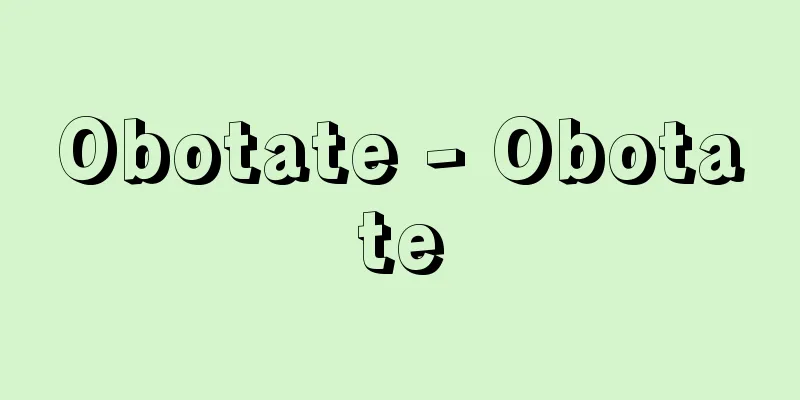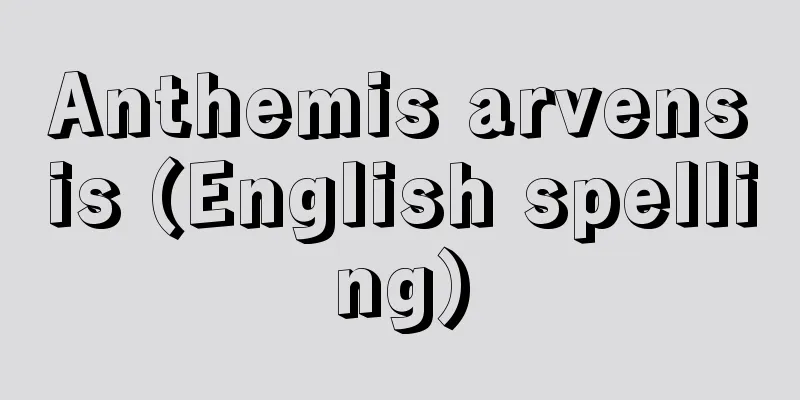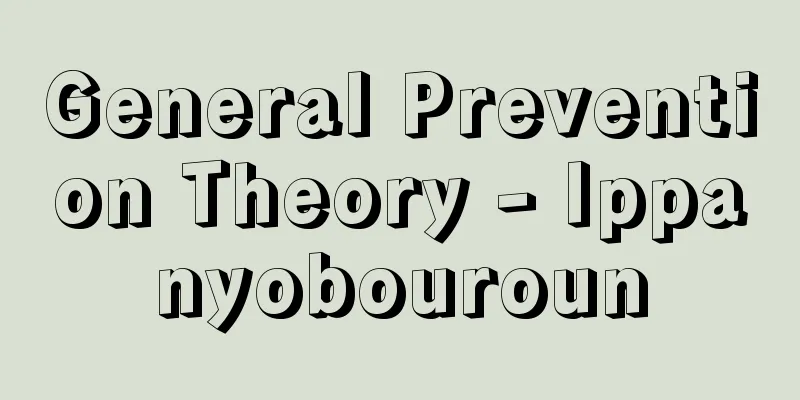Ownership - shoyuuken

|
A real right that allows one to freely use, profit from, and dispose of an object (Article 206 of the Civil Code). While real rights other than ownership are rights to control an object only to a certain extent for a certain purpose, such as cultivating land or auctioning it to use it to repay debts (limited real rights), ownership is the right to control an object completely. It is the strongest real right and forms the core of the private property system. The owner is free to use the object himself, to allow others to use it in return for a fee, or to use it as collateral. In the latter two cases, the exercise of ownership is restricted, but this restriction is only temporary and is considered to return to its original, complete state (this is called the elasticity of ownership). Furthermore, ownership is considered not to disappear by prescription like other rights, even if it is not exercised (this is called the permanence of ownership). However, this concept of ownership was created in the course of history and has not remained unchanged throughout history. In the feudal era, people rarely had complete control over things, especially land. They were restricted by various privileges of feudal lords and nobles, or by community regulations. It was only in modern times that these restrictions were abolished and free ownership was established. In the French Declaration of the Rights of Man and of the Citizen (1789), ownership was considered one of the basic rights of citizens as an "inalienable and sacred" right. This idea of absolute ownership responded to the demands of the capitalist economy that was developing at the time. However, as the capitalist economy progressed and social contradictions arose, doubts were cast on the absoluteness of ownership. Today, ownership is not considered to be one of the unrestricted natural human rights, but merely a right whose content is determined by social purposes and whose exercise is limited. The Japanese Constitution also strongly guarantees ownership (Article 29, Clauses 1 and 3), but the content of the rights is restricted in accordance with the public welfare (Article 29, Clause 2), and the Civil Code also provides that the exercise of ownership is subject to restrictions by law (Article 206). In addition, when an owner exercises ownership rights against the social purpose of the rights, it may be considered an abuse of rights and be illegal (Article 1, Clause 3 of the Civil Code), and legislation restricting the ownership rights of private individuals is gradually increasing for purposes such as cultural property protection, industrial development, urban planning, and public works. Furthermore, if ownership rights are infringed or are likely to be infringed by someone other than the owner, various claims based on ownership rights can be used to provide relief. [Yasuyuki Takahashi and Masamitsu Nozawa] Taking ownershipThere are two ways to acquire ownership: original acquisition, which is not based on the rights of others, such as acquisition by prescription, preemption of ownerless property, and attachment, and succession acquisition, which is acquisition by succession of the rights of others, such as by contract such as sale or gift, or by inheritance. In our daily lives, we often acquire ownership by the latter method. In Japan, when ownership is transferred by contract, it is sufficient to simply express the intention to transfer ownership, and methods such as registration are merely a means to assert the transfer of ownership against third parties (Civil Code, Articles 176 to 178). In the case of inheritance, the property of the deceased is transferred to the heirs at the same time as the deceased's death (Civil Code, Articles 882 and 896). When there are multiple heirs, the property is shared (Civil Code, Article 898). [Yasuyuki Takahashi and Masamitsu Nozawa] [Reference] | | |Source: Shogakukan Encyclopedia Nipponica About Encyclopedia Nipponica Information | Legend |
|
物を自由に使用・収益・処分できる物権(民法206条)。所有権以外の物権が、土地を耕作するとか、競売をして債権の弁済にあてるとか、一定の目的で一定の範囲においてしか物を支配しない権利(制限物権)であるのに対して、所有権は物を全面的に支配する権利である。物権のなかでもっとも強力な権利であり、私有財産制度の中核をなす。所有者は、目的物を自ら使用することができるほか、対価を得て他人に利用させることも、担保に入れることも自由である。後の二つの場合には、所有権の行使が制限されることになるが、この制限は一時的なものにすぎず、いずれはもとの完全な姿に戻るべきものと考えられている(これを所有権の弾力性という)。また、所有権は、これを行使しなくても、他の権利のように時効によって消滅しないものとされている(これを所有権の永久性という)。しかし、このような所有権の観念は、歴史の過程のなかにおいてつくられたものであり、古今を通じて不変のものであるわけではない。封建制度の時代には、物とくに土地について、ある人の全面的な支配権が認められることはほとんどなく、あるいは領主や貴族のさまざまな特権によって拘束を受け、あるいは共同体の規制によって制限されていた。それらの制限拘束が撤廃され、自由な所有権が確立したのは近代になってからである。フランスの人権宣言(1789)では、所有権は「不可侵にして神聖な」権利として市民の基本的な権利の一つと考えられた。このように所有権を絶対的なものとする考え方は、当時発展しつつあった資本主義経済の要請にもこたえるものであった。しかし、資本主義経済が進み、社会的な諸矛盾が発生すると、所有権の絶対性にも疑問がもたれてきた。今日では、所有権といえども無制約の天賦人権の一つなのではなく、社会的目的によって内容を規定され、その行使が限界づけられる権利にすぎないと解されている。 日本の憲法においても、所有権は強く保障されているが(29条1項・3項)、その内容は公共の福祉に従うものとして制限されているし(29条2項)、民法でも、所有権の行使は法令の制限に服するものとされている(206条)。そのほか、所有者が所有権をその社会的目的に反して行使するような場合には、権利の濫用として違法となることもあり(民法1条3項)、文化財保護・産業育成・都市計画・公共事業などの目的のために、私人の所有権を制約する立法もしだいに多くなりつつある。 なお、所有権が所有権者以外の者によって侵害され、あるいは侵害されそうな場合には、所有権に基づくいろいろな請求権によって救済される。 [高橋康之・野澤正充] 所有権の取得所有権を取得する態様には、時効取得・無主物先占・添付(てんぷ)のように他人の権利に基づかないで取得する原始取得と、売買・贈与などの契約により、あるいは相続によるなど、他人の権利を承継する承継取得の二つがある。日常われわれが所有権を取得するのは、後者による場合が多い。わが国では、契約によって所有権を移転する場合には、所有権移転の意思表示だけで足り、登記などの方式は、所有権の移転を第三者に対抗する手段にすぎないとされている(民法176条~178条)。相続の場合には、被相続人の財産は被相続人の死亡と同時に相続人に移転する(同法882条・896条)。なお、相続人が複数のときは共有となる(同法898条)。 [高橋康之・野澤正充] [参照項目] | | |出典 小学館 日本大百科全書(ニッポニカ)日本大百科全書(ニッポニカ)について 情報 | 凡例 |
>>: Emasculation - emasculation
Recommend
The Times
A representative high-quality daily newspaper in ...
Diplomatic documents
A general term for official documents related to d...
Water hammer
→ Water hammer effect Source : Heibonsha Encyclope...
Lee Stack
...In March 1919, when a rebellion against the Br...
Atlantis - Atlantis (English spelling)
A legendary island mentioned in the philosopher P...
Azuma Ohno - Azuma Ohno
A military commander in the early Nara period. So...
The fifth item - Gobanmemono
〘Noun〙 A general term for the piece that is placed...
Riva San Vitale (English spelling)
...However, since Switzerland was a stronghold of...
Racial discrimination
…Although physical differences such as skin color...
Kasturi magazine - Kasturi magazine
A popular entertainment publication published over...
ASAT - Esat
Anti-satellite : An anti-satellite weapon. The U.S...
Arsinoe II
316 before - 270 before Queen of Hellenistic Egypt...
Caeciliidae
…They are ovoviviparous, and the larvae are devel...
Red mite - Red mite
A common name for mites of the family Tetranychida...
Excessive defense
This refers to a case where a counterattack is ma...









